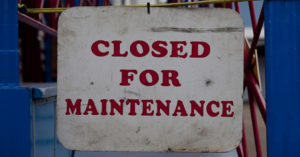When Will America Shut Down For Racial Bias Training?

Despite an ongoing war against blackness, America seems unwilling to invest in solutions to cure its anti-blackness problem.
Starbucks will close all stores nationwide for “racial-bias education” training on May 29 as the company responds to criticism and protests after two Black men were arrested while waiting at one of the coffee chain’s Philadelphia stores last week.
The curriculum will focus on how employees can recognize and address their own biases to prevent future racial discrimination. “Closing our stores for racial bias training is just one step in a journey that requires dedication from every level of our company and partnerships in our local communities,” Starbucks chief executive Kevin Johnson said in a statement on their website.
For some within the Black community, this swift cycle of events has raised the question: When will the entire United States shut down for racial bias training?
While tongue-in-cheek, this response speaks to underlying issues this country refuses to confront in any substantive way. After all, the Starbucks incident didn’t happen in a vacuum. That same day in a city just outside of Detroit, a lost fourteen-year-old Black boy was shot at after knocking on a door and asking for directions. Four days later, two Black men were wrongfully harassed and kicked out of a New Jersey LA Fitness.
The real tragedy is that none of these cases are unique since anti-black racism is part and parcel to the lifeblood and legacy of this nation. This war against blackness is also waged on a state level, which is why in more recent news a Black woman was sentenced to five years in prison for voting while on probation. It’s also why, in the last several weeks, Decynthia Clements, Stephon Clark, Danny Ray Thomas, Charles Thomas, Saheed Vassell, and Diante Yarber are the latest names to be added to an ever-growing list of Black victims of state violence.
This hazardous contempt for blackness is why Black America as a collective must always be mindful of and navigate extraordinarily cruel and absurd circumstances to survive.
Drastic change needs to take place, and it must begin with correcting fundamental assumptions that many take for granted, the main one being that anti-black racism is somehow a departure from the norm. Anti-blackness isn’t an aberration; it’s a key moral compromise built into the status quo.
Example: Remember when white residents called the police and that led to a Black teen girl being brutalized at a Texas pool party? Whether it’s the Starbucks incident, that Texas pool party, or some other scenario, white people know exactly what they’re doing when they make the conscious decision to call the police to “handle a situation” involving Black people. Whether they want to admit it or not. This scenario has played out far too many times to feign ignorance and surprise.
Anti-blackness is an unspoken understanding entrenched in our culture. Unthinking complicity with white supremacist logic doesn’t mitigate or excuse anti-blackness, hence why some Black liberation activists understandably scoff at the notion of unintentional racism.
Just because a white individual hasn’t unpacked and examined their allegiance to a set of racist values and behaviors doesn’t mean their racism isn’t racism. And just because an expression of racism isn’t perceived as “overt” or “malicious” doesn’t mean that it doesn’t decisively oppress nonwhites.
Unfortunately, America will never be shut down to deal with the ways in which it preserves white supremacy and reproduces anti-blackness throughout society. Doing that would, among other things, require dismantling and rebuilding our cultural, economic, political, legal, and educational systems. But that doesn’t mean white people can’t be part of an anti-racist movement that actively divests from anti-black racism.
Being part of such a movement would require a conscious admission that this country valorizes whiteness. It would require engaging in a lifelong process of dealing with this truth by examining and correcting the white supremacist thoughts and behaviors that have been personally and societally adopted through socialization. It would mean actually doing something about the casual racism of your family and friends. It would require finding ways to disrupt the racist systems your ancestors created that disenfranchise and dehumanize non-whites. It would require doing all of these things without the expectation of a pat on the back—because fighting for the humanity and just treatment of others shouldn’t be contingent on receiving recognition or “ally cookies.”
